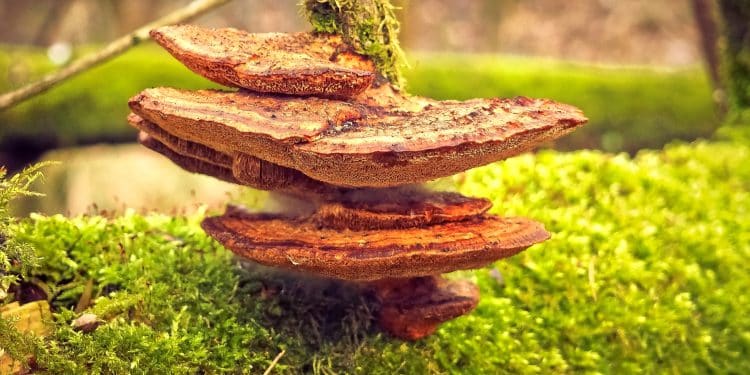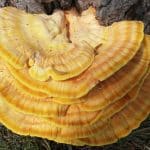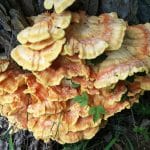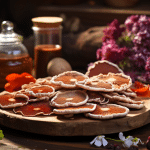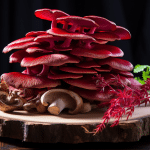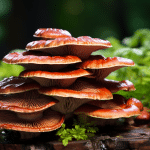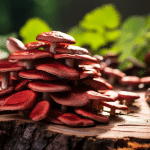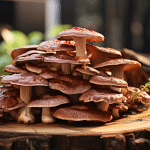Does Reishi Mushroom Help With Herpes?
Yes, studies show that reishi mushroom provides a source of immune support and anti-viral activity. An isolated proteoglycan from reishi mushrooms was found to inhibit herpes viral replication, thereby killing cells infected by the herpes simplex virus. Similarly, a protein of Maitake mushrooms was shown to deactivate and inhibit herpes simplex viral replication in a dose-dependent manner. Other mushrooms, including medicinal mushroom chaga and the almond mushrooms, are being investigated for anti-herpetic and antiviral properties.
You can find our favorite capsules, powders, and tincture’s on the following pages of our website and learn more about each individually:
The Best Reishi Mushroom Supplement
The Best Reishi Mushroom Powder
The Best Reishi Mushroom Tincture
The Best Reishi Mushroom Mushroom Gummies
More Info on the Herpes Simplex Virus
Cold sores are red, painful lesions that continually invade areas around your mouth. They spoil dates, they blemish complexions, and they are sources of embarrassment and disappointment.
Also known as fever blisters, these permanent sores are merely an external manifestation of internal virus infections. Cold sores are the most common presentation of an infection with herpes simplex labialis, the most prevalent form of herpes simplex virus.
Once you are infected with any form of the herpes simplex virus, it is established as a lifelong infection, with symptoms occurring according to the viral reproductive cycle. After the initial infection, herpes viruses migrate into sensory nerve ganglia, where they remain for an undetermined period.
The infected person remains asymptomatic throughout this silent remission period. However, during this period, there is asymptomatic virus shed, and contact transmission is possible.
A break out of the latent virus may start reproducing and creating red, puffy vesicles which release highly infectious fluids that contain active virus particles. The lesions eventually form scabs and return to remission.
Current treatments for the herpes virus use anti-inflammatories to decrease lesion size and antiviral monotherapy to suppress viral replication, but they have not been successful at substantially reducing recurrence length or severity. It is now known that herpes simplex viruses are most likely to become reinitiated when immune systems are suppressed. Inadequate innate immune function leads to an uncontrolled relapse in people who are already infected with the herpes simplex virus. Given the powerful role immunity plays in relapse, perhaps the best approach to therapy should be focused on supporting the immune system and its potential ability to allow this sleeping virus to rest.
Scientific studies and multiple clinical trials have provided substantial evidence supporting the use of different botanicals for improving immunity, particularly in a viral attack. Echinacea is especially adept at increasing antiviral immune activity. It can increase the gene expression of several immune cells, stimulating phagocytosis, and inhibiting proinflammatory cytokine and chemokine secretion.
In addition to its immunomodulating abilities, standardized echinacea preparations from aerial parts and roots have shown potent virucidal activities against herpes simplex virus upon exposure to the virus directly, either before the cells enter or during asymptomatic shedding. Astragalus, a close partner to echinacea, shares its ability to modulate and support the immune system, particularly when there is an imminent virus attack. A recent study found this incredible botanical is capable of protecting the astrocytes against the Herpes Simplex Virus via multiple mechanisms including increased expression of Tumor Necrosis Factor-I+- (TNF-I+-), Toll-like receptor 3 (TLR3), and Interleukin-6, as well as the activation of Nuclear Factor-IB (NF-IB).
In this way, the astrocytes were able to grow and proliferate normally. Infection by the Herpes simplex virus weakened cell growth and proliferation, but normal growth and proliferation was promoted by astragalus polysaccharide.
Relapse and remission can be targeted outcomes in individuals who are already infected with herpes simplex virus, but prevention in uninfected individuals should be a similarly sought-after target. Botanicals not only appear to help in remission, they may help provide aid for prevention. Monocyprin and Lauric Acid Two of the highest quality fatty acids found in coconut oil are being tested on their ability to decrease the amount of Herpes Simplex viruses by large amounts within a short period of time. Results showed more than a 100,000-fold decrease in viral load within 1 min with concentrations as low as 20 mg. This remarkable outcome provides valuable insights for using these two compounds as prophylactic agents.
While western medicine continues its quest for effective antiviral drugs, nature appears to be providing us with a number of synergistic botanicals that not only support and aid the immune system in combating ongoing viral attacks, but show promise in infection prevention.
Additional Resources:
Is Reishi Mushroom Anti-viral?
Does Reishi Mushroom Help With Epilepsy?
Updated 10/21/2022
